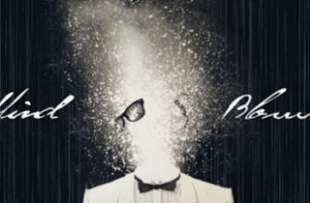
To be quite frank I have been really busy these last few months with my corporate consulting, creating new training workshops, writing manuals for those workshops (doesn't it sound riveting?), researching on my domain areas, prepping the slides, activities and doing my further studies in counselling and trying to spend as much time as I can with my baby boy. So net result?
NO TIME to just hang around the Internet to check out what is going on. So the past few days has been like falling through the looking glass. I am in a new cyber world. I have picked up two words. Noob and SaaS.
(For the uninitiated A noob or n00b is someone that lacks intellegance or common sense, most people think that noob is a word used only in the online gaming world, but in reality it is becoming an ever popular word with teenage society. Not to be mistaken with Newb which means someone inexperienced or new to gaming) I actually caught this word when my younger brother used it in a conversation. Btw if you are parent reading this, this is but one of the many many many new and exciting words of a typical youth's vernacular to verbalise disdain. They said the world is changing but I didnt' realise it has changed this much that I need to learn new words to feel an insult. Anyways... moving along
And more importantly Saas which stands for Software as a Service. I am shocked at the kind of advancement in the cloud computing world. I am convinced that in the future the more efficient way for small and medium enterprises to grow will be to learn how to deploy and manage them. Read more about SaaS
10 Main Considerations/Risks to consider when migrating to a Cloud Environment
- Service Disruption (Will my business suffer if it breaks down and I do believe this the number 1 reason why many would spurn the concept of SaaS)
- Upgradability for larger number of users and storage
- Does it play well with other platforms (Integrative?)
- How elegant and fuss free is the interface?
- How secure it is?
- Is it apple and android ready?
- How real time is it? (how quick is the refresh?)
- How intelligent is it? (Have the developers pre-empted what I might be needing)
- How much is it per user ? (or are the packages infinite? which also means darn confusing)
- Can I write my own apps within the platform for customisation? (This is found in SaaS like Salesforce)
SaaS I strongly recommend you take a look at (There are actually loads out there. I am only listing those I have personally used or am using)
1. www.basecamp.com (Project Management tool - Kids in all schools should be taught to use this tool. Simple and to the point)
2. www.hokjoki.com (Collaboration Tool for Googledrive and other awesome Saas- My personal fav)
3. www.Highrise.com (small business crm and webbased contact manager
4. www.salesforce.com ( I did do trial and a rep from sales force called up subsequently to see if I was keen for a demo. how awesome is that?)
5. www.mendeley.com (If you work entails loads of research then you definately need to consider this)
So the next time we meet in the cloud again! Keep Evolving!
Do add you comments and share the article if you found it useful!